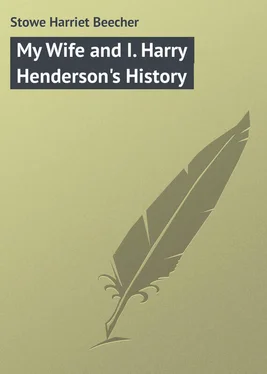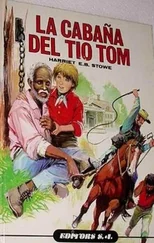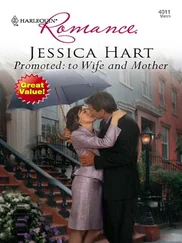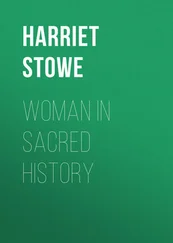Harriet Stowe - My Wife and I. Harry Henderson's History
Здесь есть возможность читать онлайн «Harriet Stowe - My Wife and I. Harry Henderson's History» — ознакомительный отрывок электронной книги совершенно бесплатно, а после прочтения отрывка купить полную версию. В некоторых случаях можно слушать аудио, скачать через торрент в формате fb2 и присутствует краткое содержание. ISBN: , Издательство: Иностранный паблик, Жанр: foreign_prose, foreign_language, на английском языке. Описание произведения, (предисловие) а так же отзывы посетителей доступны на портале библиотеки ЛибКат.
- Название:My Wife and I. Harry Henderson's History
- Автор:
- Издательство:Иностранный паблик
- Жанр:
- Год:неизвестен
- ISBN:http://www.gutenberg.org/ebooks/47874
- Рейтинг книги:5 / 5. Голосов: 1
-
Избранное:Добавить в избранное
- Отзывы:
-
Ваша оценка:
- 100
- 1
- 2
- 3
- 4
- 5
My Wife and I. Harry Henderson's History: краткое содержание, описание и аннотация
Предлагаем к чтению аннотацию, описание, краткое содержание или предисловие (зависит от того, что написал сам автор книги «My Wife and I. Harry Henderson's History»). Если вы не нашли необходимую информацию о книге — напишите в комментариях, мы постараемся отыскать её.
My Wife and I. Harry Henderson's History — читать онлайн ознакомительный отрывок
Ниже представлен текст книги, разбитый по страницам. Система сохранения места последней прочитанной страницы, позволяет с удобством читать онлайн бесплатно книгу «My Wife and I. Harry Henderson's History», без необходимости каждый раз заново искать на чём Вы остановились. Поставьте закладку, и сможете в любой момент перейти на страницу, на которой закончили чтение.
Интервал:
Закладка:
Fancy the drawing of breaths, the exclamations, the groans of delight, from a knot of pretty, well-dressed, nice country girls, at these wonderful glimpses into Paradise.
"After all," I said, "I think this custom of loading down a woman with finery just at her marriage hour, is giving it when she is least able to appreciate it. Why distract her with gew-gaws at the very moment when her heart must be so full of a new affection that she cares for nothing else? Miss Ellery is probably so lost in her love for Mr. Marshall, that she scarcely gives a thought to these things, and really forgets that she has them. It would be much more in point to give them to some girl that hasn't a lover."
I spoke with a simple, serious air, as if I had most perfect faith in my words, and a general gentle smile of amusement went round the circle, rippling into a laugh out-right, on the faces of some of the gayer girls. Miss Dotha said:
"Oh, come, now, Mr. Henderson, you are too severe."
"Severe!" said I; "I can't understand what you mean, Miss Dotha. You don't mean, of course, to intimate that Miss Ellery is not in love with the man she has married?"
"Oh, now!" said Miss Dotha, laughing, "you know perfectly, Mr. Henderson – we all know – it's pretty well understood, that this wasn't exactly what you call a love-match; in fact, I know," she added with the assurance of a confidant, "that she had great difficulty in making up her mind ; but her family were very anxious for the match, and his family thought it would be such a good thing for him to marry and settle down, you know, so one way and another she concluded to take him."
"And, after all, Will Marshall is a good-natured creature," said Miss Smith.
"And going to Europe is such a temptation," said Miss Brown.
"And she must marry some time," said Miss Jones, "and one can't have every thing, you know. Will is certain to be kind to her, and let her have her own way."
"For my part," said pretty Miss Green, "I'm free to say that I don't blame any girl that has a chance to get such a fortune, for doing it as Miss Ellery has. I've always been poor, and pinched and plagued; never can go any where, or see anything, or dress as I want to; and if I had a chance, such as Miss Ellery had, I think I should be a fool not to take it."
"Well," said Miss Black, reflectively, "the only question is, couldn't Miss Ellery have waited and found a man who had more intellect, and more culture, whom she could respect and love, and who had money, too? She had such extraordinary beauty and such popular manners, I should have thought she might."
"Oh, well," said Miss Dotha, "she was getting on – she was three-and-twenty already – and nobody of just the right sort had turned up – 'a bird in the hand' – you know. After all, I dare say she can love Will Marshall well enough."
Well enough! The cool philosophic tone of this phrase smote on my ear curiously.
"And pray, fair ladies, how much is 'well enough?'" said I.
"Well enough to keep the peace," said Miss Green, "and each let the other alone, to go their own ways and have no fighting."
Miss Green was a pretty, spicy little body, with a pair of provoking hazel eyes; who talked like an unprincipled little pirate, though she generally acted like a nice woman. In less than a year after, by the by, she married a home missionary, in Maine, and has been a devoted wife and mother in a little parish somewhere in the region of Skowhegan, ever since.
But I returned to my room gloriously misanthropic, and for some time my thoughts, like bees, were busy gathering bitter honey. I gave up visiting in the tea-drinking circles of X. I got myself a dark sombrero hat, which I slouched down over my eyes in bandit style when I walked the street and met with any of my former gentle acquaintances. I wrote my mother most sublime and awful letters on the inconceivable vanity and nothingness of human life. I read Plato and Æschylus, and Emerson's Essays, and began to think myself an old Philosopher risen from the dead. There was a melancholy gravity about all my college exercises, and I began to look down on young freshmen and sophomores with a serene compassion, as a sage who has passed through the vale of years and learned that all is vanity.
The valley of humiliation may have its charms – it is said that there are many flowers that grow there, and nowhere else, but for all that, a young fellow, so far as I know, generally walks through the first part of it in rather a surly and unamiable state.
To be sure, had I been wise, I should have been ready to return thanks on my knees for my disappointment. True, the doll was stuffed with saw-dust, but it was not my doll. I had not learned the cheat when it was forever too late to help myself, and was not condemned to spend life in vain attempts to make a warm, living friend of a cold marble statue. Many a man has succeeded in getting his first ideal, and been a miserable man always thereafter, and therefore.
I have lived to hear very tranquilly of Mrs. Will Marshall's soirées and parties, as she reigns in the aristocratic circles of New York; and to see her, still like a polished looking-glass, gracefully reflecting every one's whims and tastes and opinions with charming suavity, and forgetting them when their backs are turned; and to think that she is the right thing in the right place – a crowned Queen of Vanity Fair.
I have become, too, very tolerant and indulgent to the women who do as she did, – use their own charms as the coin wherewith to buy the riches and honors of the world.
The world has been busy for some centuries in shutting and locking every door through which a woman could step into wealth, except the door of marriage. All vigor and energy, such as men put forth to get this golden key of life, is condemned and scouted as unfeminine; and a woman belonging to the upper classes, who undertakes to get wealth by honest exertion and independent industry, loses caste, and is condemned by a thousand voices as an oddity and a deranged person. A woman gifted with beauty, who sells it to buy wealth, is far more leniently handled. That way of getting money is not called unwomanly; and so long as the whole force of the world goes that way, such marriages as Miss Ellery's and Bill Marshall's will be considered en régle .
CHAPTER VIII.
THE BLUE MISTS
My college course was at last finished satisfactorily to my mother and friends. What joy there is to be got in college honors was mine. I studied faithfully and graduated with the valedictory.
Nevertheless I came back home again a sadder if not a wiser man than I went. In fact a tendency to fits of despondency and dejection had been growing upon me in these last two years of my college life.
With all the self-confidence and conceit that is usually attributed to young men, and of which they have their share undoubtedly, they still have their times of walking through troubled waters, and sinking in deep mire where there is no standing.
During my last year, the question "What are you good for?" had often borne down like a nightmare upon me. When I entered college all was distant, golden, indefinite, and I was sure that I was good for almost anything that could be named. Nothing that ever had been attained by man looked to me impossible. Riches, honor, fame, any thing that any other man unassisted had wrought out for himself with his own right arm, I could work out also.
But as I measured myself with real tasks, and as I rubbed and grated against other minds and whirled round and round in the various experiences of college life, I grew smaller and smaller in my own esteem, and oftener and oftener in my lonely hours it seemed as if some evil genius delighted to lord it over me and sitting at my bed-side or fire-side to say "What are you good for, to what purpose all the pains and money that have been thrown away on you? You'll never be anything; you'll only mortify your poor mother that has set her heart on you, and make your Uncle Jacob ashamed of you." Can any anguish equal the depths of those blues in which a man's whole self hangs in suspense before his own eyes, and he doubts whether he himself, with his entire outfit and apparatus, body, soul, and spirit, isn't to be, after all, a complete failure? Better, he thinks never to have been born, than to be born to no purpose. Then first he wrestles with the question, What is life for, and what am I to do or seek in it? It seems to be not without purpose, that the active life-work of the great representative Man of Men was ushered in by a forty days dreary wandering in the wilderness hungry, faint, and tempted of the Devil; for certainly, after education has pretty thoroughly waked up all there is in a man, and the time is at hand that he is to make the decision what to do with it, there often comes a wandering, darkened, unsettled, tempted passage in his life. In Christ's temptations we may see all that besets the young man.
Читать дальшеИнтервал:
Закладка:
Похожие книги на «My Wife and I. Harry Henderson's History»
Представляем Вашему вниманию похожие книги на «My Wife and I. Harry Henderson's History» списком для выбора. Мы отобрали схожую по названию и смыслу литературу в надежде предоставить читателям больше вариантов отыскать новые, интересные, ещё непрочитанные произведения.
Обсуждение, отзывы о книге «My Wife and I. Harry Henderson's History» и просто собственные мнения читателей. Оставьте ваши комментарии, напишите, что Вы думаете о произведении, его смысле или главных героях. Укажите что конкретно понравилось, а что нет, и почему Вы так считаете.












